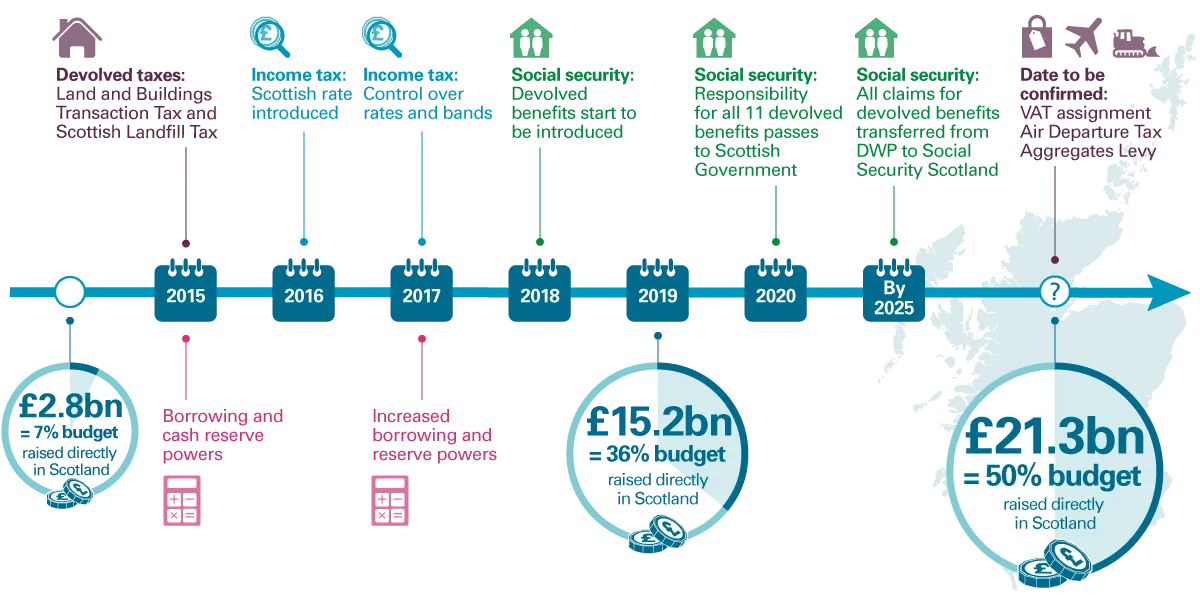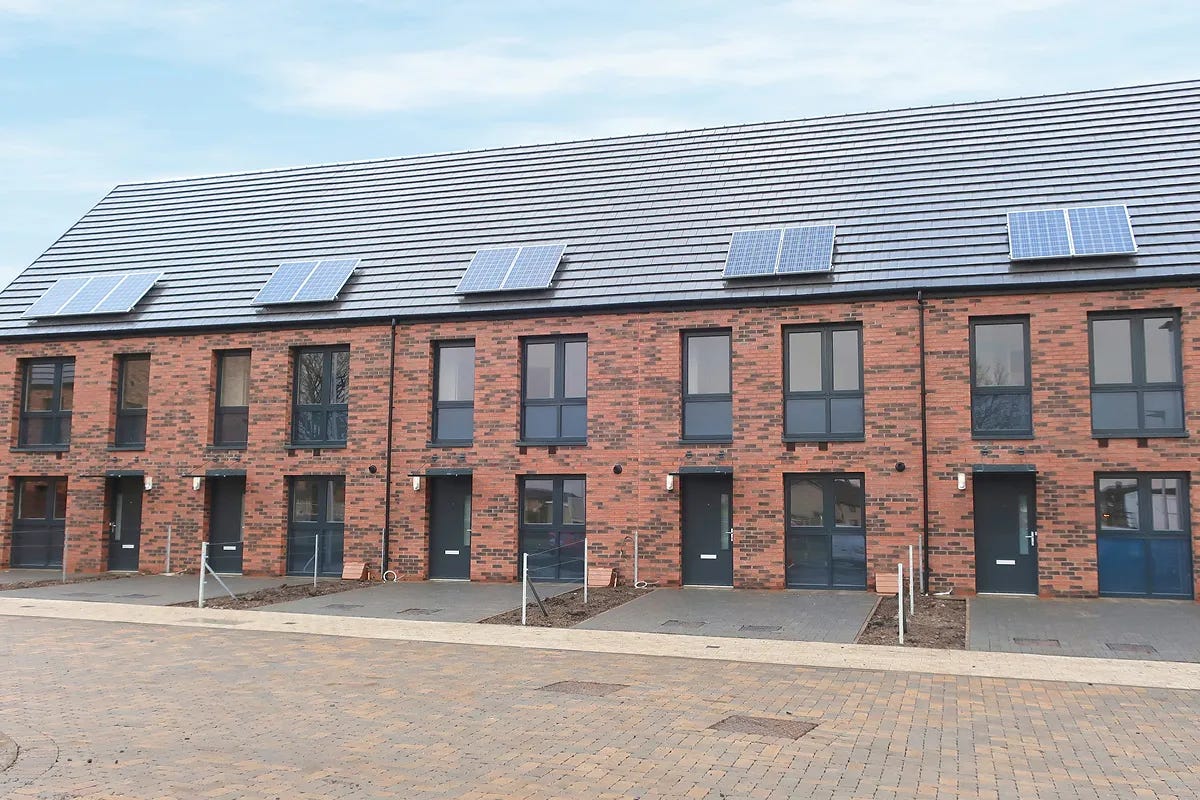Standing Up To Westminster: Scotland Can Control Migration
A raft of policy tools exist for Holyrood to challenge Westminster

Westminster has certainly not handed over the powers of immigration control to the devolved administrations. Cardiff, Holyrood, and Belfast cannot issue visas, deport foreign nationals, or restrict the number of people who come to Scotland through direct legislation. But this does not mean that the devolved administrations are powerless to affect the demographic composition of their respective lands.
The Scottish government (Riaghaltas na h-Alba), which the Scottish National Party (SNP) party has dominated since May of 2007, could do much more to protect the Scottish population from society-altering demographic change. Westminster is not the only centre of power in the United Kingdom and British/Scottish nationalists are very much right to target the administration in Holyrood.
In this piece, as we did in our other pieces in this series, We will outline a series of policy options that a nationalist government in Scotland could take without fundamentally altering the current constitutional order in the United Kingdom. Scotland does not need to secede or abrogate the British system of government in order to protect itself from the demographic change.
The Current Situation:
Scotland, and the other Celtic constituent states of the United Kingdom, have been spared the brunt of mass non-Western immigration for decades while the English have laboured under the bulk of the inflows of people. By 2008 native British school pupils fell to just 77% of the school-age population in English schools, while in Scotland native Scots represented 90.8% of the school-age population that same year. These numbers have converged, however.
As of 2021 native Scots constitute just 76.2% of the school-age population in Scottish schools, while native Brits have fallen to 63.9% of the school-age population in England. The native Scots are facing a demographic crunch in the younger segment of their population.
Overall the Scottish population is marginally ahead of the UK average. While native Britons are just 75.57% of the UK’s population, native Scots retain a share of some 80% of Scotland’s population, but this figure is falling rapidly.
The numbers are hardly better when it comes to migrant inflows. The Scottish government projects that the population of Scotland will grow by 2.5% between 2018 and 2043 and that all of this population growth will result from mass immigration. To match this dire prediction the neoliberal and anti-Scot government in Holyrood has begun to implement Scotland’s first-ever national population strategy. A plan that will see Scotland become one of the most ‘open’ societies on the planet with a state dedicated to diversity as a first principle.
This radical demographic change cannot be allowed to occur unencumbered. British and Scottish nationalists must have the tools to push back against these policies. In pursuit of this goal, We have compiled a short list of policy options that a nationalist policymaker in Holyrood could use to slow and reverse the Great Replacement in Scotland, even against the protestations of an unfriendly government in Westminster.
Policy Areas - Tax:
The first significant change a nationalist administration in Holyrood could undertake would be to change the Scottish tax system to disincentivize the residence and employment of immigrants. The Scottish government has control over a limited, but powerful, set of taxes such as the rate of income tax, the non-domestic rate of tax(business tax), the LBTT, and of course influence council taxes. Taxes such as the non-domestic rate of taxation could be separated into bands which increase the tax on any business that employs non-UK citizens, perhaps increasing the tax on a business by 1-3% for each foreigner on its payroll. Similar measures could be taken for immigrant workers themselves by requiring that they pay rates higher than native Scots.
Non-European immigrants are estimated to cost the British, and therefore Scottish, taxpayers roughly 8 billion pounds a year in excess public service costs. It only makes sense that those immigrants who must reside in Scotland make up for this drain on resources that would otherwise be available to native Scots.
There is also the Land and Buildings Transaction Tax (formerly stamp duty) which is paid when property is bought and sold in Scotland. Once again, the Scottish government could create separate bands for this tax. The administration could set significantly higher rates for sales to non-UK citizens, thereby preventing foreigners from easily buying property in Scotland.
Property:
The subject of property leads into the second policy area where a nationalist government in Holyrood could curtail immigration. Aside from simple taxation on the exchange of land and property, the Scottish government determines the bounds of Scots property law. These laws could be amended to explicitly ban the sale of Scottish lands to foreign persons or entities without the express permission of the Scottish government or even local communities.
A nationalist government could also attempt a complete ban on land sales to foreigners, though this will likely be met with a challenge in the UK’s Supreme Court. Some objects could be anticipated ahead of time and exceptions could be made for residents of certain countries, such as ethnic Britons hailing from the former dominions or residents of the European Union member states. There is wide flexibility as regards property law in Scotland.
Reform of Scots property law would serve not only to curtail immigration but also to prevent off-shore corporations from continuing to buy up Scottish land. In 2019 over 3,237 properties were sold to offshore holders. This means that properties worth some 4.42 billion pounds are not in the hands of native Scots.
Social Housing:
Of course, many immigrants to Scotland do not buy property, but instead, rent privately or in many cases seek out social housing. Currently, some 17% of immigrants in the United Kingdom occupy social housing places, displacing native Britons (and therefore Scots) from social services that they have paid for generations. The Scottish government has control over both social housing and human rights-related matters. Through the passage of new legislation in both of these areas, Holyrood could restrict social housing availability so that only citizens of the United Kingdom, or even just those with a Scottish HMRC tax code, can live in Scottish social housing.
This policy could also apply in a proactive sense. A nationalist policymaker could insert provisions that mandate that migrants currently resident in Scotland will be unable to move to a new social housing unit once they leave their current unit. With no land to buy, and limited opportunities to access social housing, many immigrants, settled and new alike, would elect to look outside of Scotland for a place to settle.
Scotland’s NHS:
Every immigrant and refugee who takes up a bed in a Scottish hospital, or utilizes a Scottish ambulance, is depriving a native Scot of those services. Services which he pays tax for throughout his entire life. The Scottish NHS, like so many other public services, is incredibly overburdened, causing Scots to wait for months for treatment. Current projections estimate that waiting times could take years to come down in Scotland, but this is unlikely if immigration continues to increase.
Yet, Scotland has fully devolved powers to determine how to run its health service. To reduce pressure on the NHS and ensure that migrants and refugees are not using a vital public service, a nationalist government in Scotland should heed the suggestion made by Dr. Jean Turner, former MP and head of the Scottish Patients’ Association, and ban non-UK citizens from using Scotland’s NHS free at the point of delivery. A nationalist government in Scotland could subject foreigners, refugees, and other migrant groups to a series of charges and bills for utilizing Scotland’s NHS services. This would curtail widespread abuse of the system and increase the money available to such a critical public service either through charges to immigrants or through lowering the immigrant population.

Policing and Criminal Punishment:
Finally, a nationalist government in Holyrood could drastically increase the penalties on foreign and refugee criminals who commit crimes in Scotland. Scotland could, and should, establish itself as the nation with the harshest criminal penalties in the United Kingdom. Police Scotland should be empowered to take necessary measures in the prevention of crime, the combating of gangs, and the arrest of the many foreigners who commit fraud against the Scottish population.
Rather than deleting the page on foreign nationals in Scottish prisons, as the Scottish Prison Service as done, the Scottish government should be honest about the number of prisoners of foreign and ethnic minority origin it has in its custody. Ethnic minorities, except for some Asian groups, all have much higher rates of incarceration than native Scots.
Foreign and refugee criminals should be held separately from Scottish prisoners, they should be subject to much longer prison sentences and in prisons that have a minimum of creature comforts. More than anything these foreigners should be deported back to their homelands as quickly as possible so that prisoners gain the understanding they will not live out their sentences in the comfort of a Western justice system.
Conclusion:
We could have listed a great deal more policy areas where the Scottish government could limit the ability of foreigners to enter and live in the country, such as through certain social security benefits or in limiting the educational participation of non-UK citizens. But, the areas listed above are the areas where the non-Scottish population most frequently interacts with the state.
The Scottish parliament may not be able to prevent the issuance of visas or close its airports and ferry terminals to the millions of migrants admitted to the United Kingdom by Westminster, but the Scottish government could - if under the influence of nationalists - make it near-impossible for any foreigner to take advantage of the native Scots and the wonderful land they call home.
Support White-Papers:
Zelle: whitepapersinstitute@protonmail.com
Buy us a coffee: https://www.buymeacoffee.com/wppi
Linktree: https://linktr.ee/wppi
Snail Mail: White Papers Policy, PO Box 192, Hancock, MD 21750








